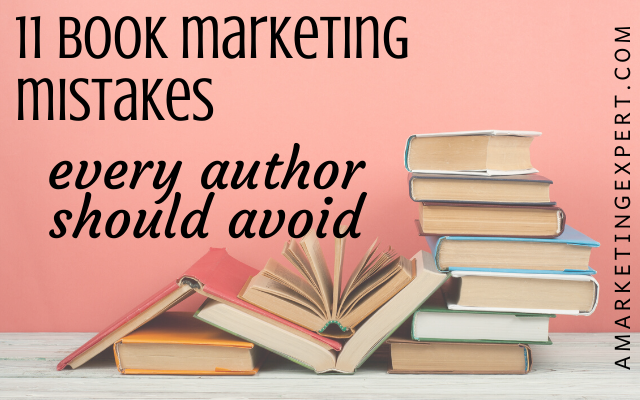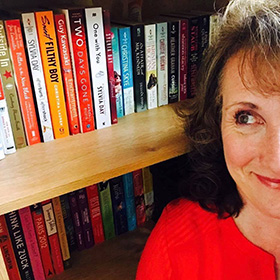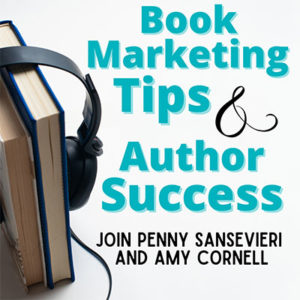Every author makes book marketing mistakes, even the successful ones, because to some degree, mistakes come from trying something new – which I encourage authors to do.
But I can save you a lot of grief by giving you my list of the most common pitfalls to avoid going forward!
1. Don’t Skip Proper Market Research
It’s time to be honest with yourself. Is there a market for your book?
If you’re writing a romance novel, then the answer is probably yes, but if you are writing something vastly different – let’s say a self-help book for guys, you may want to reconsider. Since 93% of self-help is written for women, the market for men is limited. And knowing if there is a market for you book, is a big part of publishing.
Additionally, as indie authors, it’s more important than ever to know how to reach your market. You may have dreamed of writing the next great American novel, but if you have a knack for writing sexy erotica – go with it! You’ll need to determine who will really buy your book, and how to find them. You’re far better off being hyper-focused on a core market, rather than trying to market to everyone. I have a saying: Don’t chase too many butterflies. It’s tempting to want to say “everyone” is my audience, but targeting everyone isn’t a good marketing plan. Spend your time wisely.
Digging Deeper:
- Google is a great resource for indie authors, and some simple digging with searches like “self-help book demographics” or “what do moms like to read” will pull up articles that can give you great insight into your audience.
- When it comes to finding out where your audience “hangs out,” there’s tons of info on Internet usage in the United States.
- Success leaves clues. If you’re still unsure about where to find your reader, Google your genre and the word “author,” and see how many authors writing about your topic that wind up on the first page of Google. There’s a reason that they are there, so find out where they are spending their time and what they are doing for book promotion. Are they on Twitter, Instagram, Facebook or somewhere else? This bit of research can often save you a ton of time in identifying the right place to find your market.
2. Don’t Forget to Build Your Tribe
We hear this a lot: build your mailing list, grow your fans on social media!
But what does that really mean?
This big statement and action can seem a bit daunting, but ultimately what I’m saying is that you need to get to know your fans and engage with them. Consumers have thousands upon thousands of choices on Amazon and while optimizing your presence there is important, it alone won’t make the sale.
Building your fan-tribe will be enormously important in your ongoing book promotion efforts.
Digging Deeper:
- Build your mailing list and make the sign up easy to find on your website and social media
- Utilize the back of your book for a letter inviting your readers to join you wherever you are, ask them for a review, etc.Start an exclusive group on Facebook where you offer exclusive content, prizes, etc.
3. Considered Joint Promotions
Every passing day more authors are collaborating on promotional efforts – bundled books, collaborative campaigns, and more.
This is a way of helping consumers “find their next favorite author,” but there’s also power in numbers. So several authors together, marketing collectively and individually is a great way to build momentum.
Digging Deeper
- If you haven’t started building an author network yet, the time is now.
- Join some author forums, reach out to other indie authors in your genre whose work you love, and see who you want to work with and go from there. You’ll be surprised!
4. Not Establishing a Solid Infrastructure
Remember that everything you do is your “resume.” Look professional.
Indie authors can pull together a nice website even without a big budget or extensive technical know-how.
Readers want to be repeat customers, but they’re more likely to be loyal to an indie author they trust will keep producing the goods.
A basic website gives your fans a place to follow what you’re doing and when new books will come out.
A well-managed social media account can also accomplish this, but it should be a platform your target market uses.
As I often say, you don’t need to be everywhere, just everywhere that matters.
Digging Deeper:
- Sites like Squarespace and Wix have website templates for cheap and they practically build themselves. And Squarespace specifically partners with Google so you get a professional looking email address, analytics, and even Adwords – look at you turning your writing into a business! Plus, their support is awesome, so even if you’re not a professional web expert, you can create a site you’re proud of.
- If you’d prefer to go the social media route, choose 1-2 platforms based on your research. Then, optimize your profile, and get yourself on a regular posting schedule, since social media needs to be current. A basic website can be relatively static and still be helpful, but a dated social media account will just make you look disinterested and lazy.
5. Forgoing Professional Cover Designer and Copy Editor Services
It could be argued that there’s no better success killer than a bad book cover.
And bad is not relative, bad is bad.
Check out the top books in the genre or genres you plan on listing your book in, you’ll no doubt see some similarities, in a good way, in a way that tells you what your market is drawn to. If your book doesn’t measure up, then get a new cover professionally designed, stat.
Bad book descriptions will kill your book’s success too, so don’t write your own. Just because you can write an amazing story does not mean your marketing copy will be good too. You are likely too close to your own work so it’s worth your while to hire a professional who can look over things from an unbiased viewpoint.
Digging Deeper:
- There are lots of great professionals out there, but it’s worth your time to do some research. If you’re interviewing individuals, ask if they’ve worked in your genre and ask to see some other covers they’ve done. Get in writing their terms – so fees, # of edits/tweaks, etc.
- There are also companies out there that pool together professionals for a one-stop shopping experience perfect for those with budget limitations.
- Be prepared to provide the professionals you hire with details on your target market, what sets your story/approach apart, and why you wrote the book.
6. Forgetting About Reviews
Reviews matter! It’s not just the reviews that are important, but the timing of the reviews as well as their consistency.
If you don’t have reviews and you’re not working with a publicity company to help you get reviews, it’s probably not a good idea to pump a bunch of money into other kinds of promotion. Of all the things you should be doing consistently, gathering reviews should be at the top of every indie author’s list.
Digging Deeper:
- There are a lot of companies out there offering reviews, so if you opt to go this direction, ask to see samples. Keep in mind you get what you pay for, and many inexpensive firms (and some expensive ones) use overseas resources, and often reviews that look fake get pulled down by Amazon. Make sure your book is being offered to real readers that live in the country you’re marketing to, and make sure there are some guarantees that you’re not throwing your money away.
- Include a letter in the back of the book inviting your readers to review the book and link to the book page on Amazon. Make the letter friendly, thank them for taking time to read your book and ask them, good or bad, if they might also make the time for a review. You might be surprised how many of your readers will do this, simply because you asked. This back of the book letter is a must for indie authors.
- Ask your fans for reviews. People are busy and need to be reminded. So regularly thank your fans and readers on your site, in your newsletter, or on social media, and remind them that you’d really appreciate a review. This is a great message to put in the front and/or back of your book as well.
7. Waiting for the “Perfect” Media Opportunity
There is no opportunity too small!
Don’t turn down a single interview opportunity, guest blog post, or podcast interview. In fact, Chicken Soup for the Soul got to be such a huge, household name, because they took advantage of every single interview, regardless of size or hour (sometimes a radio interview at 3am).
The most successful authors take every opportunity presented to them in regards to exposure. Mail the book. Write the article. Do the interview. Small steps lead to bigger advances and more opportunities.
Digging Deeper:
- Pitch media and do the follow up. When something comes up in the news or popular culture that you can play off, re-pitch them using the timely angle.
- Your local media is often a great place to get some exposure and start building your media coverage. Especially if you have a regional angle to a topic that’s making national news!
- Be sure you’re offering something unique. What makes your book special? Why is it different than the other 10 books they already own in your genre or topic? And, make it easy for them – give them topic and discussion ideas, some talking point, statistics to help tell a complete story. Make it easy for them to say ‘yes.’
8. Forgetting That Everyone Loves A Sale
Discount eBook promotions offer a great tool for building buzz. Why? People love sales. Although you may question the idea of discounting your book after spending your time and hard-earned money to get it to market, you can’t beat the exposure. Keep an open mind, and do a few of these each year.
Digging Deeper:
- There are plenty of eBook promotion sites to help get the word out – some paid, some free. Take the time to develop a list of go-to sites you can use that fit your needs and flexibility with pricing requirements, and add several eBook promotions to your marketing calendar each year.
- Promote the promotion! Ask your current fan-base to spread the word to their friends, post it on your social media channels. Are you friends with other indie authors? Make a deal with them that you’ll promote each other’s work for special events like this and watch your exposure skyrocket!
9. Not Learning New Things
I’m not suggesting you spend all your time following every marketing recommendation or every book promotion opportunity out there. There’s not enough time in the day.
But you should keep up with new ideas and great tips. If you invest a small amount of time learning every week, each book you release will be more successful than the last.
Digging Deeper:
- Find a few resources that speak to you and commit to not only reading them, but implementing their tips and strategies. Consider for example bookmarking this blog, also Jane Friedman’s blog is another great one, as is Joanna Penn’s. Plus, I’d be honored if you bookmarked mine.
- Finding a hard time choosing? Narrow down your options by figuring out who writes for particular types of authors. So search for “romance writing tips” or “business book tips” and see which outlets or individuals regularly touch on subjects that are important to you and start following them.
10. Not Starting Your Next Book
Don’t plan to retire off your first book. Although possible, it really isn’t likely.
So start your next project!
Plus, this goes back to having a home base and letting readers know you’re a sure thing. Readers love seeing their favorite indie authors working on the next book; this is how you establish long-term fans.
Digging Deeper:
- Set up a writing schedule and follow it. Make it a priority – it’s important if you want to be successful.
- Remember that your next release doesn’t have to be a full-length book – novellas or shorter books (50-75) pages often do well as eBooks. Consider adding shorter books as in-between titles to keep building your shelf.
- Let your learning inspire you! You’ll no doubt run across a lot of ideas that make you say, “I wish I would have done that!” so use that motivation to keep writing, and try it next time!
11. Not Participating in Your Own Success
I can walk into a room of let’s say 300 indie authors and pick out the ones who are going to be successful.
Want to know how I do it?
Well, I look for the authors who carry business cards or bookmarks with them to every event; they are eager to learn and engage. They’re curious, and they’re always doing something to build on their success, no matter how small.
They also know that spending tons of money on a publicity firm will have very lackluster results if you have zero interest in playing a leading role in your own success. You can pay people to do the heavy lifting, but no one will have the passion for your book that you do, so plan to do your part for book promotion even when you hire out.
Digging Deeper:
- Use your strengths to your advantage. If you’re social, take your book everywhere and engage people. If you have great online skills, start securing guest posts on blogs. You get the idea.
- Create a calendar marketing calendar and pick a few things you can do consistently, even if you just spend 5 minutes at a time. Do something small every day, just keep at it and you’ll do well in this marathon.
Ultimately, your success is in your control. And although you don’t have to follow every single suggestion to the tee, I want you to work smarter so you can maximize your efforts. And, if your current book is out of the running for some of these things, you can make some changes for your next book, the one you’ve already started writing. Go out and find opportunities and then make the most of them. You were inspired to create something, don’t let that fire die out!
Resources and Free Downloads
5 Ways to (Still) Sell More Books in 2020
The Top 12 Questions I’m Asked About How to Market a Book
Get a Custom Marketing Assessment and Personalized Recommendations





Hello Penny,
We met at BlogPaws and had hoped we would have a chance to chat. This post is filled with excellent information I will share with those who help at ArtichokePress.com
Writing is the easy part, marketing is what kills most of us writers. Good to learn more about your services.
Judy Helm Wright–Author/publisher & Intuitive Wise Woman
Judy nice to see you on our blog. I’ll be at BlogPaws this year if you’re there let’s chat!
Lots of great tips here, I do many of these things already but picked up a few extra tricks to try out, great post!
Thanks, Ryan! Glad you enjoyed it – best of luck with your marketing!
Dear Penny,
Thank you for so much useful information. I am just about to self publish my first children’s book and I feel like I have read so many useless tips. The things you said make sense and I hope will get me going in the right direction! Do you have any posts listing good author forums?
Carol, congratulations on your first children’s book! Check out the post at https://amarketingexpert.com/50-resources-indie-authors/. There are some really great resources included.